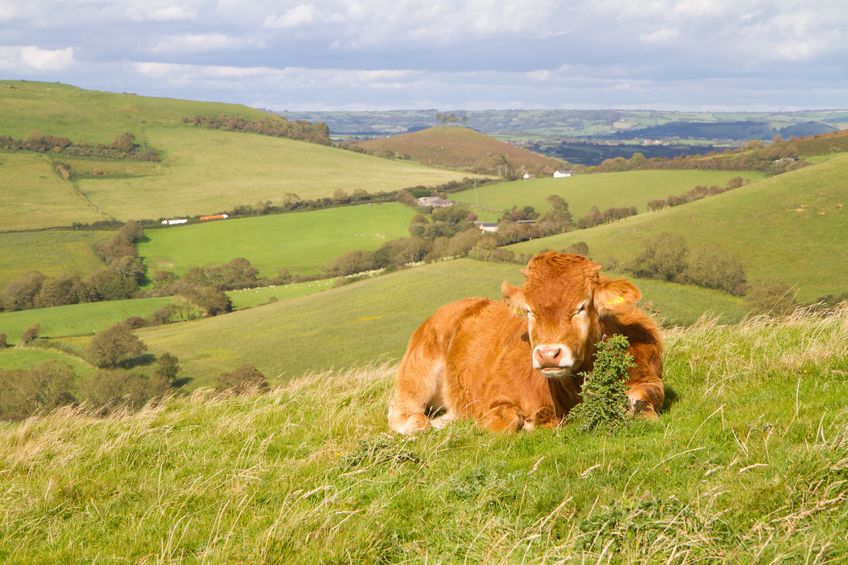
Beef producers across the country are showcasing their sustainable production practices as part of this year's Great British Beef Week.
The weeklong event, which started on Friday (23 April), aims to champion British beef and the farmers who produce it.
Ladies in Beef – a group of more than 150 female beef farmers from across the UK – are again spearheading the campaign.
This year, the focus will be on the environment with an emphasis on what farmers do to make British beef highly sustainable.
Farming in the UK, with its extensive, grass-based, grazing systems, produces some of the most sustainable beef in the world.
According to the Committee on Climate Change, emissions from UK beef are about half the global average, meaning not all red meat production around the world is the same.
Emissions from UK livestock are estimated to be around 5% of the country’s total GHG emissions, lower than the estimated EU-wide figure for livestock of around 9.1% of all emissions.
According to the NFU's report 'Climate friendly farming: The facts about British meat', 87% of UK beef is produced using predominantly forage-based diets, with only a very small amount of soya in rearing diets.
This means British beef production is not a driver of deforestation in other parts of the world.
Jilly Greed, who co-founded Ladies in Beef with NFU president Minette Batters, said today's campaign demonstrated how the UK beef sector was 'progressive'.
"By doing this, our aim is to reassure consumers that by continuing to buy and enjoy beef, they are acting responsibly and sustainably.”
She explained that managing land in a sustainable way was a 'fundamental responsibility' of the modern-day farmer.
"This includes farming regeneratively, improving grasslands and paddock grazing, planting trees, maintaining wildflowers for the bee population, harvesting and giving cattle rainwater to drink."
Minette Batters added that the British beef sector had 'so much to celebrate right now' as the product was 'fantastic and affordable'.
She said British beef was produced "in one of the most sustainable ways possible, utilising our natural resources to turn inedible grass into delicious, climate-friendly protein."
“As farmers we know the quality of our products. We know how we care for our cattle. We know that our businesses form the backbone of rural economies and communities.
"And we know how British farming methods help protect the environment, reduce our climate impact and maintain our iconic countryside for everyone to enjoy.
"So let’s use this week to share the success story that is British beef and demonstrate why British really is best.”
